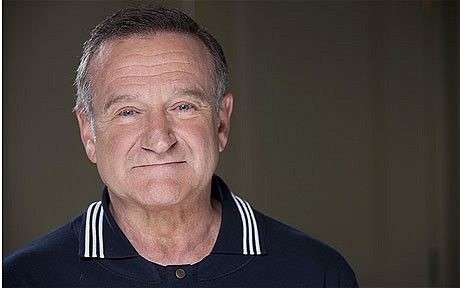
Robin Williams
Robin Williams, an Oscar-winning actor and comedian known for a distinct brand of comic mania, was found dead yesterday in his Tiburon, California home of an apparent suicide. He was 63.
A stand-up and impressionist, Williams’ big break came with the sitcom Mork and Mindy, a Happy Days spin off that ran on ABC from 1978 to 1982. The show introduced the world at large to Williams’ one-of-a-kind comic voice, to his otherworldly energy and propensity for turning gibberish into gold. For millions of people of a certain age, Williams is still defined by Mork’s trademark rainbow suspenders.
For others, though, Williams was as much of a shapeshifter as the Genie he so unforgettably voiced in 1992’s Aladdin. He was a constant and unflappable presence in iconic films and light trifles alike. He made the sort of movies that you can’t help but finish when you come across them on TV; the sort of movies that you can always quote effortlessly with old friends; the sort of movies that you smile over when you find them on a DVD shelf.
There he was, tender-voiced and donning drag in Mrs. Doubtfire. There he was, furry and near-feral in Jumanji. There he was, throwing himself around with wild abandon in Flubber and The Birdcage.
Juilliard-trained, Williams also brought depth to a slew of dramatic roles: He earned a Golden Globe for his embodiment of the lunacy of war in Good Morning, Vietnam and an Oscar nomination for his turn in Dead Poets Society. He won the Academy Award for 1997’s Good Will Hunting.
It was right that Williams earned so much acclaim for playing teachers. For a generation of performers and audiences, he was a guiding force and a role model, even as he publicly struggled with mental illness and sobriety. Williams grappled with cocaine in the 1970s and ’80s. He also fought a lifelong battle with alcoholism, and in 2006, he sought treatment after 20 years of sobriety.
According to his publicist, Williams was battling with a bout of “severe depression” in recent days. It’s both impossible and all too easy to believe. As much as Williams was a fountain of pop culture-spewing, arm-flailing, go-for-broke laughs in his film and television work, it wasn’t hard to spot the darkness always lurking just below the surface of the desperate family man of Mrs. Doubtfire, the quiet obsessives of The Night Listener or One Hour Photo, the yearning professors of Good Will Hunting and Dead Poets Society.
All are deeply damaged characters, bringing light to others even as they cope with their own buried regrets and demons. Joy and sorrow coexist along a razor’s edge, and perhaps no performer – in life or in art – embodied that truth as thoroughly as Williams, whose mania could be at once playful and heartbreaking, insipid and insightful, joyously dumb and devastatingly smart.
Williams is survived by a wife, Susan Schneider, and three children from two earlier marriages, daughter Zelda, 25, and sons Zachary, 31, and Cody, 22.



